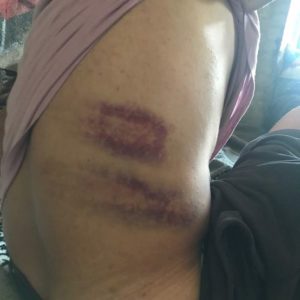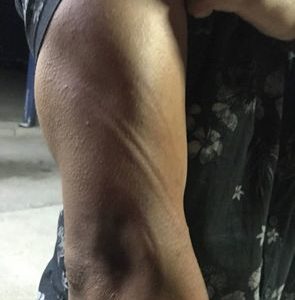The respondent and other two men from Iran left from Velika Kladuša (BiH) and walked for three days to Zagreb (Croatia), from where they took a taxi to move on further within Europe. The taxi was stopped by the Croatian police close to the Croatian-Slovenian border around 8am and all men were transported to the police station, where they were detained until around 9 pm. Inside of the police station, the men were questioned by the officers about their names and nationalities. The respondent clearly stated to the police officers that he wanted to claim asylum in Croatia. One of the police officers promised to call the immigration officers, who would help them to access the asylum procedures, but they never arrived.
Afterwards, the men were asked by the police to sign a paper that was written in the Croatian language and none of them understood the content of the paper. The respondent asked the police several times what was written on the paper, but the police ordered the men to sign it and stop asking questions and did not provide a translator or any explanation of the purpose of signing this paper. Afterwards, the men were deported to the Bosnian border together with two men from Pakistan (they were five in total). The journey from the police station to the border took around 2,5 hours. According to the interviewee the journey was difficult because the van was closed, had no windows nor ventilation, and there was a lack of oxygen inside, so the men had problems breathing. They were also driving very fast and the men felt sick.
The men were driven close to the Bosnian border (the area around Velika Kladuša), where they were handed over to other 3 Croatian police officers. These 3 police officers took the men and told them to get into another car and drove them to a nearby forest. The respondent did not know the exact location of this forest, as the car had no windows, so he could not follow the directions. He however states that the forest was close to the official border-check point in Velika Kladuša, and there was a corn field and water spring nearby. When they reached this forest, it was around midnight. The forest was dark, there were no lights.
The police first broke the men’s phones and stole their money, taking 500 euros from the interviewee, 300 euros from his one friend and 1000 euros from the other friend. The police also stole the men’s bags. Afterwards, the men were told by the police officers to get out of the car, one by one, and started physically
attacking them with batons:
They took my friend outside and closed the door. I could not see through the door as there were no windows, but I could hear how they were beating him. This took around 5 minutes. Afterwards they told me to get out of the car and I knew I was going to be beaten. Two police officers took my hands and one was beating me by a plastic baton into my back, legs, and everywhere. After, they put me on the ground and kept beating me. Their faces were red, and I could smell alcohol
from them. I was trying to escape, but I fell into the water. They shouted at me to go back to Bosnia. I ran to a little hill and fell down.
After the respondent had fallen he escaped from the police and went on to search for his friends. All of them were pushed to different parts of the border. Once they found each other, they walked back to the camp in Velika Kladuša, and after that they all left to Bihac.


